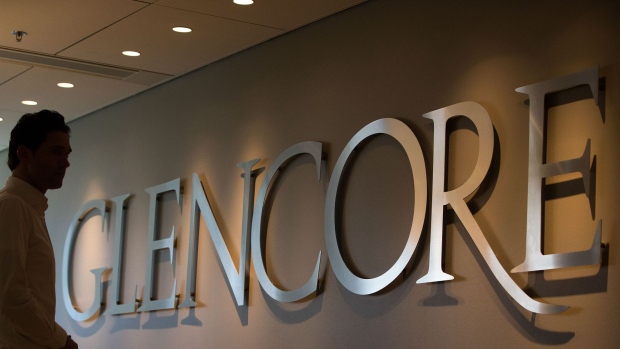Oct 8, 2022
Glencore Deal in Chad Holds Key for G20 Debt-Relief Breakthrough
, Bloomberg News

(Bloomberg) --
China, France and other creditors are trying to sway Glencore Plc and a syndicate of lenders to delay loan repayments owed by Chad, in the final stretch of an arduous race to lock in the first debt renegotiation under a global relief plan.
An offer by the Central African nation’s creditor committee -- formed by China, France, India and Saudi Arabia -- to restructure its debt depends on a Glencore-led consortium’s willingness to contain a surge in debt-service costs anticipated in 2024, according to people familiar with the matter. The people declined to be identified because the matter is private.
Without a deal, Chad’s debt renegotiation could fall apart, casting a shadow over the so-called Common Framework plan engineered by the Group of 20 wealthy economies to accelerate the restructuring of poor countries’ loans.
Glencore, the world’s biggest commodity trader, this week sent a proposal that’s being reviewed by Chad and official creditors to determine whether it ensures the country will achieve debt metrics needed to continue with a $570 million International Monetary Fund program, the people said. It’s unclear whether Glencore’s proposal will be accepted by official creditors.
A Glencore spokesman declined to comment. Chadian Finance Ministry spokesman Adam Abakar Kayaye declined to comment when contacted by phone, while Prime Minister Albert Pahimi Padacke and Finance Minister Tahir Hamid Nguilin didn’t answer calls to their phones.
The Paris Club, a group of mostly rich western creditors, and the IMF are pushing for a compromise before the fund’s fall meetings next week in Washington DC, where they hope to showcase the first debt overhaul under the framework since its inception in 2020. Government creditors are finishing the details of a memorandum of understanding with the relief offer, the people said.
Chad, along with Ethiopia and Zambia, are the only countries among 73 eligible nations that have requested debt treatment under the G-20 plan.
Protracted Negotiation
Disagreements among government creditors, disputes with Glencore and the sudden death of Chad’s strongman president in a desert battle against rebels have delayed restructuring talks since the country first requested assistance in early 2021. The lack of progress is holding up the first review of its IMF program, depriving external financial support from a country that relies on oil and foreign donations to drive its economy.
Zambia’s debt talks have also been plagued by delays -- initially because of elections last year and then after China needed persuading to join an official creditors’ committee.
While high oil prices mean Chad doesn’t need immediate debt assistance, official creditors agree that reprofiling its loans will shield the country from any sharp drop in commodity values. The landlocked oil producer wants to renegotiate about $3 billion of debt -- about a third of it owed to a group of private creditors including Glencore, according to IMF data of the country’s debt stock in late 2020.
The debt to Glencore is repaid by crude shipments through a resource-backed agreement that enables countries with limited access to capital markets to obtain loans. Such accords have been criticized by advocacy groups including the New York-based Natural Resource Governance Institute, which argues they’re often hidden from public view and removed from government books.
The acceleration of debt payments to Glencore under the current contract is hampering Chad’s ability to benefit from higher oil prices, IMF Africa director Abebe Aemro Selaisse said during a visit to the capital, N’Djamena, in May.
Chad’s oil revenue almost tripled from a year earlier in the second quarter, according to official data analyzed by REDD Intelligence. During the same period, outstanding debt to private creditors dropped to $789 million, down from $850 million at the beginning of the year.
Chad is ruled by a military junta led by General Mahamat Déby -- the son of the slain president. The government this month approved a plan that allows Déby to remain in power until 2024, and run in elections scheduled to take place that year.
Sign up for the New Economy Daily newsletter, follow us @economics and subscribe to our podcast.
©2022 Bloomberg L.P.








